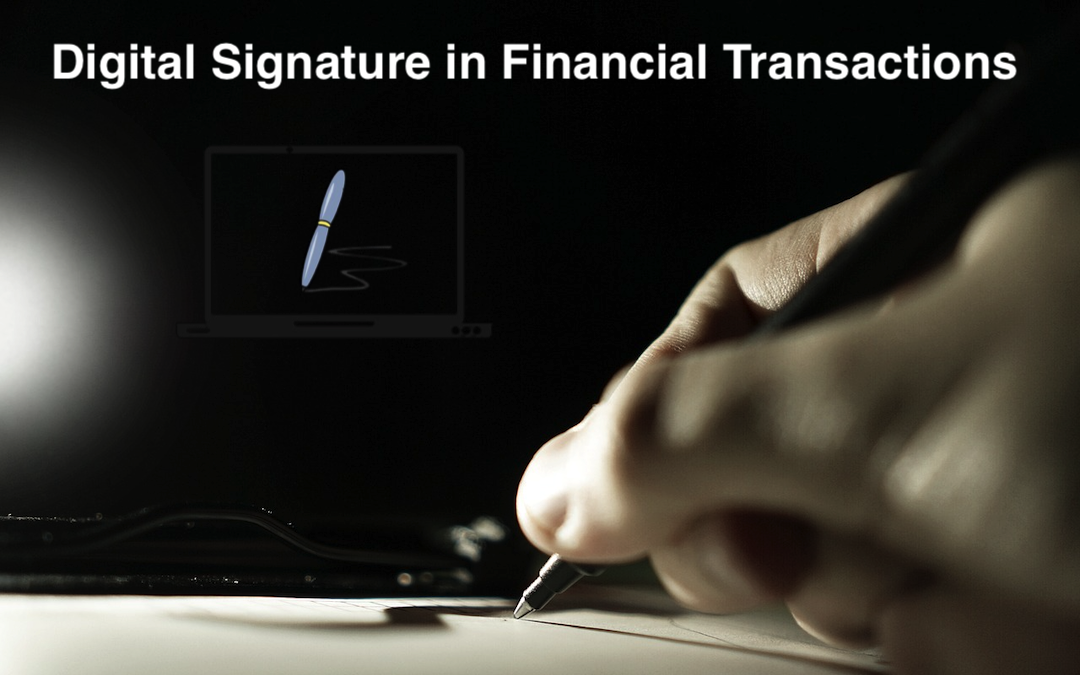
Have you ever wondered how we can be sure that a signed document is not forged? Most people today do not put too much effort into considering the matter, but banks and companies in general do care. They use digital signatures to ensure that their financial transactions are safe. A digital signature is an electronic analogue of our traditional handwritten signature. However, to make it work, an encryption algorithm is used. As a result, money is kept safe, and no one can mess with transaction documents.
The Role of Security in Financial Transactions
The role of security in financial transactions is harder to overemphasize. Now, when most people have moved either fully or partially to digital or online banking, the risks associated with fraud and hacking have grown. Old-fashioned signatures are no longer applicable, as it is not safe to check every new transaction by hand.
Thus, financial institutions, online stores, and all people involved in money-related activities need to do their best to provide the required security. Otherwise, they might face heavy losses, ruin their reputation, or even end up in jail.
How Do Digital Signatures Work?
Modern digital signatures are used to secure different types of online financial transactions. They work as follows:
- The document is signed using a special electronic key that only the signatory person knows. They use this key to generate the signature.
- The resultant signature is attached to the document, and we can find out if anyone has changed it since.
- Finally, the person who receives a signed document uses a public key to verify the signature.
These transactions are possible due to the use of public-key cryptography, through which the signing key is kept secret, while the verification key is public.
Benefits of Using Digital Signatures
When it comes to financial transactions, digital signatures offer a treasure trove of benefits for companies — and their customers. Some of the key advantages are as follows:
- Super Safe: They use state-of-the-art encryption to create a digital fingerprint for each document (nearly impossible to forge) and apply that system to your signature.
- Speed of Processes: By eliminating paper and manual checks, transactions are much faster.
- Increased Trust and Responsibility: Digital signatures help us know where and how something was executed, making everything trackable and leading to transparent transactions.
- Cost Saver: Paper processes are gone and the possibility of fraud is slim, on top of all the legal fees you can avoid.
- Securely Legal: Digital Signatures are nothing different from a signature on a piece of paper. Choosing digital signatures is legally viable when you sign electronic documents and contracts.
- Scalable: It is not always easy to predict your future digital needs, but what you do know is that as a business grows, so can its signing system.
- More Satisfied Customers: Less friction in the signing process means happier customers.
Ultimately, these benefits boil down to making financial transactions safer and swifter — pinpointing exactly why a digital signature can be such a wise choice for businesses.
Five Most Common Myths Related to Digital Signatures
Digital signatures are very useful, but a handful of myths might keep more people from using them. Let's clear those up:
- They are not legally binding. For the most part, digital signatures are just as valid as handwritten ones. They are perfectly fine for legal contracts.
- Too difficult to implement. While they may have fancy names, digital signature solutions are designed for anybody in your organization to use and fit into the workflow you already have.
- Not safe enough. WRONG AGAIN. This is VERY secure because digital signatures involve high-grade encryption. They are far less forgeable than paper signatures.
- Only for big enterprises. No — digital signatures are accessible for companies of all sizes. There are many options out there, depending on your budget and requirements.
These days, virtually every industry and government on Earth accepts digital signatures, and they're becoming more frequent. Defining these myths could help everyone better understand digital signatures, especially when discussing money.
Conclusion
In digital times, we need something to keep our financials safe and make things run smoother. Digital signatures are the key to the future—they’re secure and fast, save you money, and grow your business. Trusted by everyone, they even make customers happy. Although there are some myths around them, the truth is they work for everyone. It’s quite reasonable to keep up with the times and adopt this technology to keep your customers' trust.
Share this post
Leave a comment
All comments are moderated. Spammy and bot submitted comments are deleted. Please submit the comments that are helpful to others, and we'll approve your comments. A comment that includes outbound link will only be approved if the content is relevant to the topic, and has some value to our readers.

Comments (0)
No comment